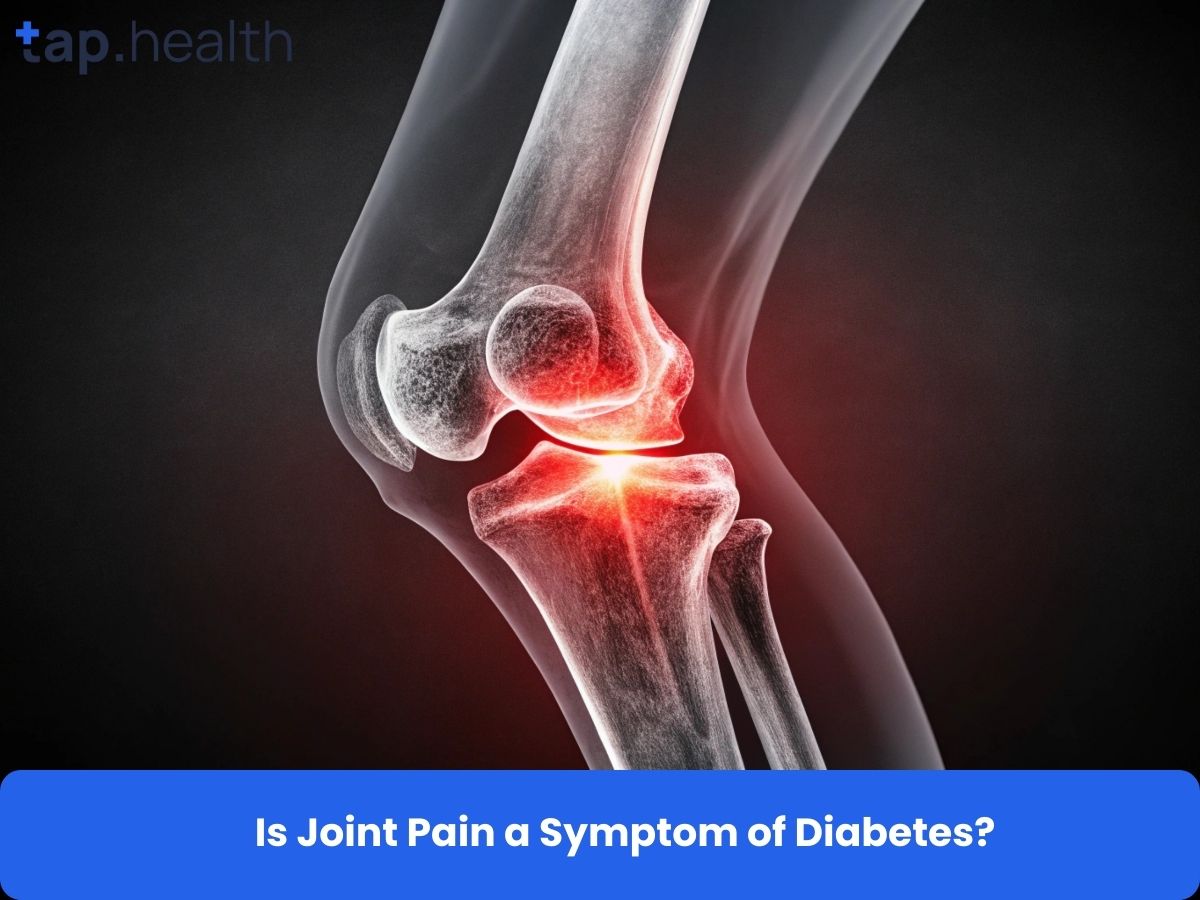Table of Contents
- Diabetes and Intestinal Obstruction: A Risky Combination?
- Understanding the Symptoms of Bowel Blockage in Diabetics
- Intestinal Obstruction in Diabetics: Prevention and Management Guide
- Diabetes and Gastroparesis: Increased Risk of Bowel Obstruction
- Recognizing the Signs: When to Seek Help for Bowel Blockage with Diabetes
- Frequently Asked Questions
- References
Living with diabetes presents unique challenges, and understanding potential complications is crucial for effective management. One often overlooked but serious concern is the link between Diabetes and Intestinal Obstruction. This often debilitating condition can significantly impact your health and quality of life, making early recognition of symptoms vital. In this blog post, we’ll explore the increased risks individuals with diabetes face, delve into the telltale signs of intestinal obstruction, and discuss how to best protect yourself. Let’s unravel the connection between these two conditions and empower you with the knowledge to stay ahead.
Diabetes and Intestinal Obstruction: A Risky Combination?
Diabetes significantly increases the risk of various complications, and intestinal obstruction is a serious one often overlooked, particularly in Indian and tropical countries. The underlying mechanisms aren’t fully understood, but several factors contribute to this increased susceptibility. For instance, the high prevalence of diabetes-related neuropathy, impacting nerve function in the digestive system, can lead to decreased gut motility and increased risk of bowel obstruction. This is exacerbated by the high incidence of gastroparesis (delayed stomach emptying), another common complication of diabetes.
Understanding the Increased Risk
The connection between diabetes and intestinal obstruction is complex. One crucial factor is the high incidence of diabetic nephropathy. Nearly 30% of individuals with diabetes develop diabetic nephropathy, a form of kidney disease that can affect fluid balance and contribute to constipation, a major risk factor for bowel obstruction. Furthermore, poor glycemic control often seen in diabetes can further weaken the digestive system, increasing the risk of complications. In tropical regions, specific dietary factors and infectious diseases might further amplify these risks. This risk is also heightened by the strong correlation between Understanding the Link Between Diabetes and Obesity, as obesity itself contributes to various digestive issues.
Recognizing the Symptoms
Recognizing the symptoms of intestinal obstruction is critical for timely intervention. Common signs include severe abdominal pain, bloating, nausea, vomiting, and inability to pass gas or stool. If you experience these symptoms, especially if you have diabetes, seek immediate medical attention. Early diagnosis and treatment can significantly improve outcomes and prevent life-threatening complications. Understanding how diabetes affects the body’s systems is crucial for prevention; for example, poor blood flow can significantly impact various organs, as explained in How Does Diabetes Affect Blood Flow?.
Taking Action in India and Tropical Countries
Given the high prevalence of diabetes in India and other tropical countries, awareness and proactive management are crucial. Regular check-ups with your doctor, including monitoring for signs of intestinal obstruction, are essential. Maintaining optimal blood sugar levels through diet, exercise, and medication can significantly reduce the risk of developing complications like intestinal obstruction. Don’t hesitate to consult your healthcare provider if you have any concerns.
Understanding the Symptoms of Bowel Blockage in Diabetics
Diabetes significantly impacts overall health, increasing the risk of various complications. One often overlooked, yet serious, complication is intestinal obstruction or bowel blockage. While less discussed than diabetic foot ulcers (nearly 15% of diabetics experience foot ulcers in their lifetime, posing high amputation risks), bowel obstruction presents a critical threat, especially in individuals living in hot and humid climates prevalent across India and other tropical countries. The added challenge of dehydration in these regions intensifies the severity of this condition.
Recognizing the Warning Signs
Symptoms of bowel obstruction in diabetics can be subtle and easily mistaken for other diabetic complications. Persistent abdominal pain, often cramping and worsening after meals, is a key indicator. Nausea and vomiting are common, potentially leading to dehydration, a particularly dangerous complication in warm climates. Changes in bowel habits, such as constipation or the inability to pass gas, are also significant warning signs. Bloating and abdominal distension further contribute to discomfort and can be exacerbated by high temperatures. Diabetics should be especially vigilant about these symptoms, seeking immediate medical attention if they experience a combination of these signs. Managing diabetes effectively is vital in reducing the risk of complications like intestinal obstruction, so remember to follow the advice in How to Prevent Long-Term Complications of Diabetes: Easy Tips.
Seeking Immediate Care
In India and other tropical countries, prompt diagnosis and treatment are crucial due to the increased risk of dehydration and infection. Don’t delay seeking medical help if you suspect a bowel obstruction. Early intervention can significantly improve the outcome and prevent serious complications. Remember, managing diabetes effectively is vital in reducing the risk of complications like intestinal obstruction, so maintain regular check-ups with your physician and adhere to your prescribed treatment plan. It’s also important to be aware of other symptoms related to blood sugar levels, such as those described in Why Do Diabetics Get Sleepy After Eating?.
Intestinal Obstruction in Diabetics: Prevention and Management Guide
Understanding the Increased Risk
Diabetes, particularly Type 2, significantly increases the risk of intestinal obstruction. This is partly due to the high prevalence of insulin resistance in over 80% of Type 2 diabetics. Insulin resistance can lead to various complications affecting the gastrointestinal tract, including nerve damage (diabetic neuropathy) that weakens bowel muscle function and increases the risk of paralytic ileus, a common cause of intestinal obstruction. Additionally, diabetic patients often experience delayed gastric emptying, further contributing to the risk. In tropical and Indian contexts, factors like malnutrition and underlying infections can exacerbate this risk.
Recognizing the Warning Signs
Early detection is crucial. Symptoms of intestinal obstruction in diabetic patients may be subtle or masked by existing diabetic symptoms. Be vigilant for symptoms like persistent abdominal pain (cramping or bloating), nausea, vomiting, constipation (or inability to pass gas), abdominal distension, and fever. The severity of these symptoms can vary greatly. Seek immediate medical attention if you experience any of these, especially in combination.
Preventive Measures and Management
Maintaining optimal blood sugar control is paramount in preventing complications like intestinal obstruction. A balanced diet rich in fiber, regular exercise, and adherence to prescribed medications are crucial. For individuals in Indian and tropical regions, paying special attention to hydration is vital, as dehydration can worsen existing gastrointestinal issues. Regular check-ups with your doctor are essential for early detection and management of diabetic complications. For more tips on effective diabetes management, check out 10 Proven Tips for Effective Diabetes Management. If you experience symptoms, consult a gastroenterologist or your physician immediately for proper diagnosis and treatment tailored to your specific needs and regional context. Remember that a healthy diet plays a crucial role; you might find Diet Chart for Diabetic Patients to Control Diabetes helpful in planning your meals.
Diabetes and Gastroparesis: Increased Risk of Bowel Obstruction
Understanding the Connection
Diabetes significantly impacts various bodily functions, increasing the risk of complications. One such complication is gastroparesis, a condition affecting stomach emptying. This delay in gastric emptying can lead to a build-up of food and fluid in the stomach, potentially causing intestinal obstruction. The connection between diabetes and gastroparesis highlights the importance of proactive management of blood sugar levels. Poorly controlled diabetes can exacerbate gastroparesis, making bowel obstruction more likely. This risk is particularly relevant in Indian and tropical countries where certain dietary habits and underlying health conditions might further increase susceptibility.
Symptoms and Risk Factors
Symptoms of bowel obstruction related to gastroparesis can include persistent nausea and vomiting, abdominal bloating and pain, and constipation. The severity of symptoms can vary, ranging from mild discomfort to a life-threatening emergency. Individuals with diabetes, especially those with poorly managed blood sugar levels, should be especially vigilant about these symptoms. The risk is heightened by factors such as neuropathy (nerve damage), a common complication of diabetes. It’s crucial to remember that early detection and intervention are vital in managing this complication. Regular check-ups with a physician are essential for individuals with diabetes, particularly in regions like India and other tropical countries where access to healthcare might be variable. Diabetes can affect multiple organ systems; for example, How Does Diabetes Affect the Respiratory System? explores another significant complication.
Seeking Help in India and Tropical Countries
If you experience persistent nausea, vomiting, or abdominal pain, especially if you have diabetes, seek immediate medical attention. Early diagnosis and treatment are key to minimizing complications. In Indian and tropical countries, access to healthcare can vary. It’s vital to establish a relationship with a trusted healthcare provider who understands the regional challenges and can provide appropriate guidance and care. Don’t delay seeking help; your health is your priority. Understanding the interconnectedness of diabetes with other health issues, such as sleep apnea, is also crucial for comprehensive health management. For more information, see The Connection Between Diabetes and Sleep Apnea.
Recognizing the Signs: When to Seek Help for Bowel Blockage with Diabetes
Understanding the Increased Risk
Diabetes significantly increases the risk of intestinal obstruction, a serious condition where the bowel becomes blocked. This is particularly relevant in India and other tropical countries where diabetes prevalence is high, and often undiagnosed. The alarming statistic that 50% of diabetes cases worldwide remain undiagnosed highlights the vulnerability of many individuals. This lack of diagnosis delays treatment, potentially worsening complications like intestinal obstruction. Factors such as neuropathy (nerve damage) common in diabetes can reduce bowel motility, increasing the risk of blockage. Additionally, diabetic gastroparesis (delayed stomach emptying) can contribute to the problem. Understanding the early signs of diabetes is crucial for prevention; learn more by reading 10 Early Signs and Symptoms of Diabetes?.
Recognizing the Symptoms
Symptoms of intestinal obstruction can be subtle initially, often mistaken for other digestive issues. Be vigilant for symptoms such as severe abdominal pain, persistent vomiting, inability to pass gas or stool, abdominal distension (swelling), and constipation. These symptoms, especially when accompanied by existing diabetes, require immediate medical attention. In India and tropical regions, access to timely healthcare might be challenging, therefore, early recognition is crucial. Remember, early intervention can significantly improve outcomes. It’s important to note that symptoms can vary depending on factors like gender; for example, see Signs and Symptoms Of Type 2 Diabetes In Women for more information.
Seeking Immediate Medical Help
If you experience any of these symptoms, particularly if you have diabetes, seek immediate medical care. Don’t delay treatment; intestinal obstruction is a medical emergency. In India and many tropical countries, readily available resources such as local clinics and hospitals offer immediate assistance. Prompt diagnosis and treatment can prevent life-threatening complications. Don’t hesitate – your health is paramount.
Frequently Asked Questions
Q1. What is the connection between diabetes and intestinal obstruction?
People with diabetes have a much higher risk of developing intestinal obstruction. This is because diabetes can damage nerves in the gut (diabetic neuropathy), slow down digestion (gastroparesis), affect fluid balance (due to diabetic nephropathy), and generally weaken the digestive system if blood sugar isn’t well managed.
Q2. What are the symptoms of intestinal obstruction in people with diabetes?
Symptoms include severe abdominal pain, bloating, nausea, vomiting, and the inability to pass gas or stool. If you experience these, seek medical help immediately.
Q3. Why is early diagnosis and treatment of intestinal obstruction so important for diabetics?
Intestinal obstruction can be life-threatening. Early diagnosis and treatment are crucial to prevent serious complications. This is especially important in areas with limited healthcare access.
Q4. How can people with diabetes reduce their risk of intestinal obstruction?
Maintaining good blood sugar control through diet, exercise, medication, and regular check-ups is vital. Proactive management of diabetes is key to reducing this risk.
Q5. What should I do if I experience symptoms of intestinal obstruction?
Seek immediate medical attention. Do not delay treatment, as intestinal obstruction can be a serious and even life-threatening condition.
References
- A Practical Guide to Integrated Type 2 Diabetes Care: https://www.hse.ie/eng/services/list/2/primarycare/east-coast-diabetes-service/management-of-type-2-diabetes/diabetes-and-pregnancy/icgp-guide-to-integrated-type-2.pdf
- Diabetes Mellitus: Understanding the Disease, Its Diagnosis, and Management Strategies in Present Scenario: https://www.ajol.info/index.php/ajbr/article/view/283152/266731



